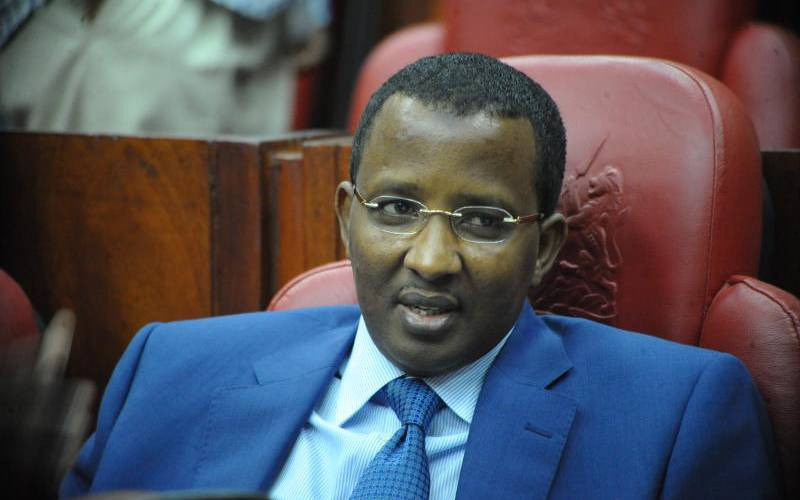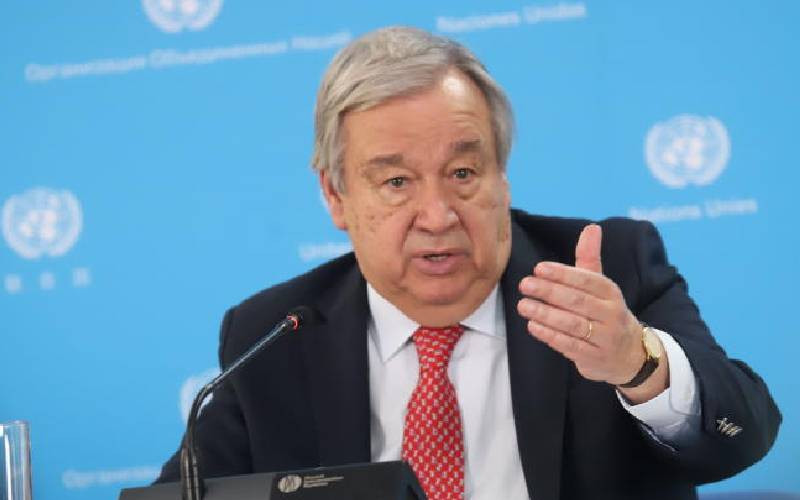First, it’s important to understand the differences between, and that exist in Barack Obama [the Son of a Kenyan – Barack Hussein Obama Senior], President Barack Obama [The 44th President of the United States of America] and The Administration of President Barack Obama [The government of the United States].
In its general delineations, Barack Obama is a US citizen who was born in Honolulu in 1961 by a Kenyan father, Barack Hussein Obama, Sr. His mother, Stanley Ann Dunham, born in Wichita, Kansas, was of mostly English ancestry. Barack Obama is proud and happy to be associated with African-Americans in the US and around the world. He is also happy of being Kenyan-American first US President. Apparently, that is all about Barack Obama – in nutshell.
Then, there is President Barack Hussein Obama. He is the 44th President of the United States of America. President Barack Obama is the Commander-In-Chief of the US Armed Forces and heads the government. As the president, Obama’s position in US is both ceremonial and administratively functional.
The last narrative of “The Three Obamas” is what he (it) means in the United States of America, that is, the Administration of President Barack Obama. This is the functional government of the United States of America. It is the core of business and policy formulations “unknown-room” – for US and the entire world – whenever possible. It is The Administration of Barack Obama that makes decisions and not “Barack Obama nor President Barack Obama.” However, President Barack Obama can influence decisions and change the course of actions in his administration and in the US. The administration of US Presidency is a well-planned system which has got every element of clout to influence world’s agenda.
In Kenya however, people value Barack Obama [the Son of a Kenyan – Barack Hussein Obama, Sr] more than President Barack Obama [The 44th President of the United States of America] and The Administration of President Barack Obama [The government of the United States].
In 2013, a faction of Kenyan politicians from Jubilee Coalition used the Obama narrative to influence voters. It was widely peddled by Jubilee Coalition that CORD Presidential candidate, Raila Odinga was being installed on Kenyans by the US and the West. This was after Obama administration's top Africa diplomat, Johnnie Carson, warned pointedly before the poll that "choices have consequences", a comment widely seen as a recommendation that voters back Kenyatta's opponent, Raila Odinga.
"This is going to pose a very awkward situation," Jendayi Frazer, a former assistant secretary of state for African affairs, told the New York Times. "Kenyatta knows he needs the United States, and the United States knows it needs Kenya."
After winning 2013 presidential election, Uhuru Kenyatta immediately turned his back on US and faced the East, China. Since then US must have realized that she was in the verge of losing a very important part in Africa.
Most vital American interests include Kenyan cooperation in the fight against al-Shabaab militants which have in the past launched scathing attacks against Western nationals in Kenya and Somalia. Kenya's military power is very crucial in the fight against Indian Ocean piracy in Somalia and in tackling regional problems including refugee crisis in East Africa. As it stands to date, Raila Odinga is against Kenya’s continued military presence in Somalia. United States of America differs with Raila on the suggestion to pull Kenyan troops from Somalia.
Currently, the US is fronting a friendship with Kenya on developmental terms. Kenya is one of the few countries which are highly rich with mineral wealth including oil, gas, coal and brilliant young manpower. To counter China’s developmental sway in Africa, seemingly, the Administration of Barack Obama has no choice but to grudgingly embrace President Uhuru Kenyatta. While White House officials gave the standard line – “We welcome China in Africa” – Nils Tcheyan, director of government relations for General Electric in Africa, told the same press briefing: “I mean, we can talk about China as a competitor, and there’s no doubt about it, they are a competitor.”
Between 25th to 29th July 2015, the Administration of Barack Obama made history as the first US sitting presidency to visit Africa, and Kenya in particular – under the disguise of Global Entrepreneurship Summit. Obama became the first sitting US president to address African Union in Addis Ababa, Ethiopia. While addressing Politicians and entrepreneurs in Nairobi, Obama noted that “Africa is on the move” more than ever before, and that the old stereotypes of war, famine and hopelessness have been replaced by some of the fastest growing economies in the world.
After President Barack Obama’s speech in Kenya and Ethiopia, it was no doubt that he came to mend the broken fences with President Uhuru Kenyatta whom he spent more than three hours with. Contrary to the expectation of many Kenyans, Obama was so soft on the government and even pledged further corporations. He however blasted the opposition and accused them of hypocrisy.
Empirically, Barack Obama did not travel to his “home town” in Siaya K’ogelo because he did not come in his capacity as the “son of the soil” but as the head of US government and the 44th President of the United States. Maybe, next time when he returns as Obama – the Son of Kenya, he will travel to Nyanza, Masai Mara game reserve and enjoy beautiful sceneries at the Nairobi National Park. He will also create more time for Raila Odinga, who, ostensibly is his best choice for Kenyan presidency.
Hypothetically, Barack Obama, President Barack Obama and the Administration of President Barack Obama have got conflicting interests on and in Kenya. Nonetheless, the Administration of President Barack Obama must have its way because – it has the interest of the people of United States. Barack Obama’s preferred presidential candidate may be Raila Odinga but that cannot override his administration’s interest.
The fact that President Barack Obama (during his visit to Kenya) even went ahead to meet Deputy President William Ruto who is facing criminal charges at the ICC, it means that US is ready to compromise her ethical standards so as to have Kenya play to the political and diplomatic tunes of the current generation. The bottom line is, “President Barack Obama’s visit to Kenya and Africa was meant to front US agenda” – which ideally is not bad for Kenya. Steve Case, chief executive of investment firm Revolution, offered this take: “I think the first wave of investment in Africa was around infrastructure. I think the next wave, which is now just breaking, is around innovation. And that where I think the United States is particularly advantaged.”
Stay informed. Subscribe to our newsletter
Kenya is gearing up for 2017 general election, and there are a lot of speculations in the air. CORD Coalition, led by Hon. Raila Odinga believes that 2013 presidential election was rigged in favor of Uhuru Kenyatta. Whether this chronicle is true or false, nearly four years down the line, CORD Coalition, The Judiciary and Electoral Commission are still at loggerheads over President Uhuru Kenyatta’s win. If 2013 elections were stolen in favor of President Uhuru Kenyatta, then most likely, even 2017 might be rigged. No one is however so sure that Raila Odinga’s team has the capacity to detect and prevent electronic voting rigging. They could be banking on mass protest, the judiciary and communal numbers so as to effect and change the cause and course of Kenyan politics.
The US government, that is, Barack Obama’s administration – can do too little in electoral reforms in Kenya. Virtually, the US will keep off delicate issues like electoral reforms in Kenya – and focus much more on how to build economic ties with the next president (whether Raila Odinga or Uhuru Kenyatta). Somehow, the US doesn’t care anymore – the integrity of the person will become the next president of Kenya. In his speech Obama avoided any issues to do with ICC and focused on fundamental factors of economic growth like “corruption-free-Kenya.” This means that the narrative of “Choices have consequences” is null and void in Kenya.
Even if US government wanted to support Raila Odinga in his bid for 2017 presidential election, they are not sure of his ability to win any presidential election is Kenya. The fact is, Rt. Hon. Raila Odinga is a politician with a wealth of experience, connections and passion for a greater Kenya, but “Kenya-is-Kenya” – anything is possible in Kenya. Barack Obama’s administration is superficially not ready to risk another round of bad-blood with the president of East African powerhouse, Kenya. In the Kenyan electoral circles, fairness in an election (2017 included) could be a hallucination, especially if all the factors remain constant.
 The Standard Group Plc is a
multi-media organization with investments in media platforms spanning newspaper
print operations, television, radio broadcasting, digital and online services. The
Standard Group is recognized as a leading multi-media house in Kenya with a key
influence in matters of national and international interest.
The Standard Group Plc is a
multi-media organization with investments in media platforms spanning newspaper
print operations, television, radio broadcasting, digital and online services. The
Standard Group is recognized as a leading multi-media house in Kenya with a key
influence in matters of national and international interest.
 The Standard Group Plc is a
multi-media organization with investments in media platforms spanning newspaper
print operations, television, radio broadcasting, digital and online services. The
Standard Group is recognized as a leading multi-media house in Kenya with a key
influence in matters of national and international interest.
The Standard Group Plc is a
multi-media organization with investments in media platforms spanning newspaper
print operations, television, radio broadcasting, digital and online services. The
Standard Group is recognized as a leading multi-media house in Kenya with a key
influence in matters of national and international interest.








